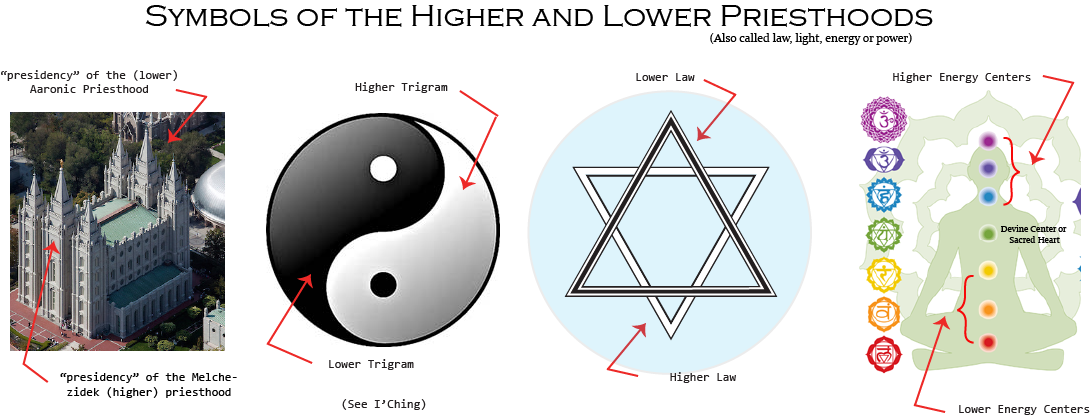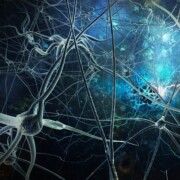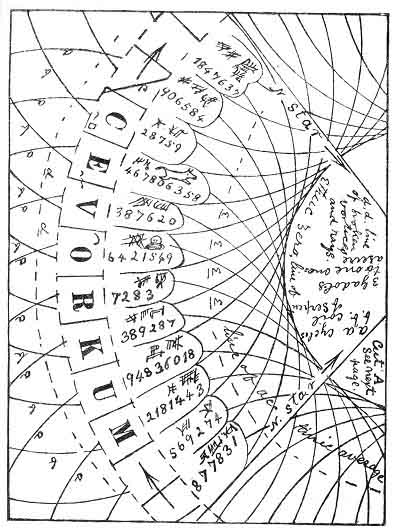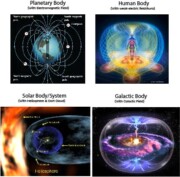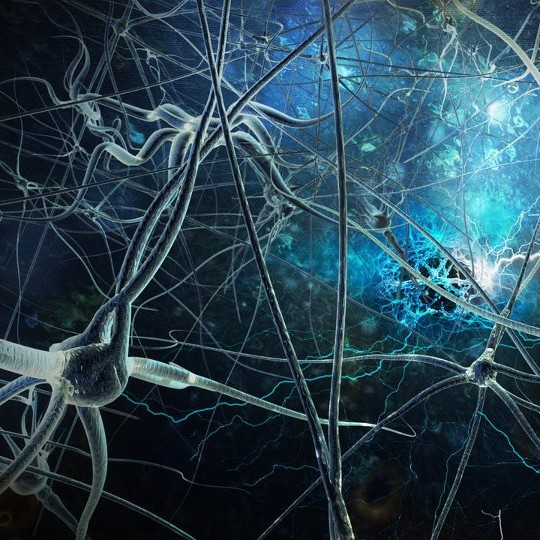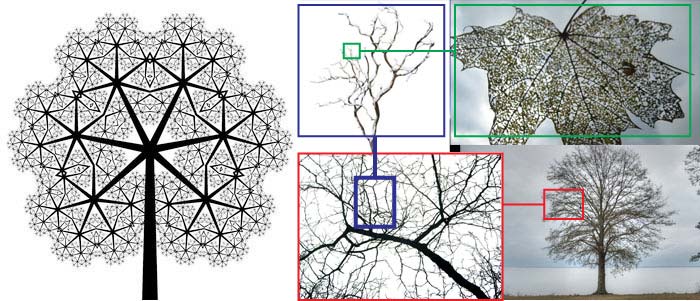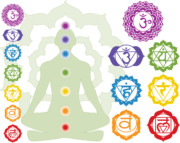What to do about Porn.
The advent and spread of internet pornography is a radical, polarizing social experiment whose impacts are just now beginning to be widely pondered, studied, discussed and learned from. What are we to make of it? There are literally tens of millions of people out there dealing with the effects of this issue and many are screaming what are we going to do about this?! My experience with porn comes from an environment of strong religious biases, so you’ll see that my remarks are targeted toward helping those in similar circumstances. In my experience it is those who are “deeply religious” who have the biggest psychological issues with pornography and its my hope these ideas will help give some balance to those who find themselves on edge. My purpose in this article is not to justify or demonize sexual media, but to help people (especially religious people) understand that one’s polarized black & white emotional response to this issue (one’s belief of whether its good or bad) is a huge aspect of why pornography is so alluring and addictive to so many.
What’s the big deal about porn anyway?
The issues surrounding porn really are the same issues surrounding sex in its most general sense. They are really issues revolving around human sexuality, and these issues affect different people in different ways. In fact they affect the same people far differently depending on what stage of life they are in. It’s interesting to note how my views on sex (and pornography) have changed through time. Perhaps differently from other young men, when I was an adolescent sex was not a big deal at all. I rarely thought about it, and never engaged in it. It never brought me any pain or pleasure. It was a side-note I heard about from society, but had no personal experience with. I never really had access to pornography, so my experience with it was as limited as my experience with sex. Today after 10 years of marriage I can again say that sex and pornography are just not that huge of a deal, even though I’ve now had a good amount of experience with both. The older I get the less interesting porn is because it is so shallow compared to true healthy sex. But its crazy to remember back just a few years when I was 25 to 30 and think about how huge of an issue it was in my life. At that point, sex & pornography were the single biggest issues on my mind. My life was in turmoil. My parents got divorced at 18, my dad died the same year. I started dating and kissing for the first time at 21 and got married at 24. As soon as sex entered my life, all the issues buried within became manifest in sex and pornography. And I believe this is why some people “make” such a big deal out of it, because those people (or those close to them) are hugely unbalanced and that unbalance is manifesting in the sexual aspects of their lives. I made a HUGE deal out of both sex and porn when my life was hugely unbalanced, and I blamed it on those things because they were so closely intertwined. But in retrospect I see that porn or sex or marriage or fights or even death aren’t the root causes of pain in our lives, they are simply the catalysts which manifests & exacerbates the true issues which lie in our hearts (our emotional psychology). In fact, in my life I came to realize that I was using porn as an excuse to dealing with my real issues. The real source of emotional pain is the imbalance between our desires, belief systems/values & actions (see my article on Moral Purity); and the traumatic events in our lives act as catalyst to show us those imbalances. Similarly I see how the desire or inclinations for things like sex, relationships, anger, power, drugs, money or pornography are outward manifestations of an inner need to feel whole and balanced. We do best to recognize this early and address the roots of the problem, rather than glorify or demonize the symptoms or outward manifestations.
The function of a catalyst
The function of a catalyst is to increase in the rate of a chemical reaction. Heat can be a catalyst, as can many other substances. Just like a fight or argument often explosively brings many issues out in the open which may have been silently simmering in the minds of the participants, so do all catalysts or “trials” bring to the surface hidden issues & weaknesses. But also just like a fight or argument, sex or pornography can create more and larger issues if the conscious choice is not made to use this catalyst to bring about constructive communication, understanding, forgiveness and acceptance. Next to death and its grieving response, sexual responses are perhaps one of the strongest catalyst we face in our lives; and catalyst/trials are many people’s most powerful means of personal growth and self discovery. (It may seem strange to compare the pleasure of sex to the pain of the death of a loved one, but in my experience both of these extremes can surface the same strong emotions—emotions which catalyze us equally to action and self discovery.)
Demonizing/Shaming porn keeps problems it manifests from getting better.
By “demonizing” something, I mean that you shame it or give it a label or stigma such as “it is evil”, or “its forbidden and thus you are bad for doing it”. I think it is very unfortunate that religion is usually the worst at creating harmful stigmas, although society does it too especially though legal systems (prohibition and illegal drugs are a good example). This is actually one of the harmful effects of sexualized depictions in media; that by showing an image of a ‘beautiful’ person, those who do not fit this mold can be made to feel demonized or shamed because they don’t ‘measure up’. This has the tendency of holding them into a mold of inadequacy and leads to all manner of unbalanced behaviors. But exactly the same is true when religions say something is ‘evil’. By calling porn or pre-marital sex or whatever behavior ‘sinful’ or unlawful, they consequently cause perpetrators to self-label themselves as ‘sinners’ and ‘bad’; having the same effect of isolating them in a mold which divides them from the group and traps them into psychological behaviors. …… This paradoxical tendency of written law or moral code to divide and negatively subjugate units of society has been long understood by philosophers and religious leaders. It is built into the Bible’s garden drama or the ‘tree of good and evil’ and was extensively lectured on by Paul in the New Testament. He often repeats the idea that “the letter [of the law] killeth” (when it is carved in stone such as the ten commandments), “but the spirit giveth life” (2 Cor 3:6); A couplet pointing to the idea that the best way to help people to grow and progress is not to give them dogmas, commandments and codes, but to lead them by the hand and lovingly help them in their particular circumstances to understand how to achieve harmony, balance and unity. (René Girard and Martin Buber explain these concepts well). In Mormonism this concept is taught in many symbolic ways from the temple ceremony to the D&C to the writings of Joseph Smith (TPJS P. 256). It is interesting to note that what seem to me as Joseph Smith’s finest words on the matter of living by the spirit instead of culturally accepted religious law, came in a letter to Nancy Rigdon, attempting to explain to her and the Puritan minds of the era why Polygamy and other non-traditional consensual sexual arrangements where not prohibited by God if saints would just seek his permission that things might be done harmoniously & judiciously (sidenote: I’m not saying that to justify or demonize polygamy or pornography).
The bigger deal you make out of something, the bigger deal it becomes.
It’s like the saying goes, “don’t make a mountain out of a mole hill”. And yet we do it all the time. Issues are only as big as the energy and power we give them. By blowing things out of proportion, or attaching them to unrelated deeper issues we can create a condition of psychological hypochondria. I’ve noticed that despite biological programming I can drastically condition the way my children respond when they get hurt by the way I react. My reaction to their accidents drastically affect how they end up reacting. I believe the same is true in society or religious culture, conditioning people how to react to situations like divorce, infidelity or similar issues regarding sexual media addiction. The stigma which religion attaches to morality can be like the over-dramatic parent; it can encourage a howling psychological reaction which distracts those injured from learning the true cause and effect relationship inherent in the hurtful moral action. Most discussions on pornography and moral issues in general (especially religious discussions) forget this lesson.
In my personal experience and those I’ve read about, most painful “issues” with porn are manifestations of deeper pre-existing issues in the person’s relationships (just like most sexual issues). Porn abuse can make these issues larger or more unbalanced, but the original issue had nothing to do with the porn. Yet because some religions and societies have shamed, demonized and made sexual media into such a big deal a new issue is created, complicating an issue that would have been easier to work out before the interference. Now instead of a couple or family confronted with a growing porn issue saying “man, could this be an indication that there is a developing problem in our family relationships that we should explore?”. Instead we have a condition that grows in secrecy because of the shame that has been attached to it, and one day it’s exposed causing them to say “oh my God, my partner/child has betrayed me like an adulterer. This insidious evil makes him/her or me wicked and unclean! How could this happen to me? How could they cheat on me?! I’m not good enough, they’re not good enough! He/she or we are no longer ‘perfect’ and what must we do ‘overcome’ this sinful act and regain our perfect little family!” (I’m pouring on the over-dramatization here, but hopefully you get the point, and realize the silliness of any aspect of this response.) Now we have two issues to deal with; the likely personal relationship issues that caused the individual to seek a relationship with porn, AND the new and more difficult to solve pride/self-righteousness issues which create the shame cycles fueling an addiction and destroying self-worth. It is the stigma that encourages the secrecy and the over-reaction and shame cycle which fuels the blame, addiction & imbalance.
Sexual Media has different effects on everyone, exploring those consequences together is the only way to come to understand its place in each persons life and society as a whole.
Every person on earth is unique, and every activity yields unique results in their lives. I think most people realize this, but it doesn’t help legislators or religious leaders who must generalize in order to draft up social laws and codes to govern society. (Thus the continuing paradox in that system of governance.) Some people can drink alcohol and live happy, loving, balanced lives. Some can’t have a drop without becoming raging alcoholics. The same is true for just about every drug. The same goes for sex both inside and outside of marriage; to one couple sex stabilizes and grows the relationship, to another it continually destabilizes and eventually destroys it. Everyone is unique and at different levels of their own progression and when our generalizations become too broad, it hurts the ones we might be trying to help. We must be careful in our sweeping generalizations of sexual media or ‘porn’. In my experience, I heard “pornography is evil”, and “sex is bad outside of marriage” all growing up and it ended up equating to “sex is evil” and “you are evil because you are drawn to it”. This caused an intense polarized reaction when I finally got married and was thrown into the gambit of sexual desire. I was unable to deal with so much change so fast. Unable to separate healthy from unhealthy, the illusion of what I was told (both from church leaders and from internet videos) compared to the reality of what I was experiencing. Unable to balance the generalizations that my church told me through its leaders (sex = bad) with what God was telling me in my heart (sex = good) . After growing up a little I’ve come to see the pettiness of the generalizations about sexual media and sex in general. In my own life I see so clearly what helped me or hurt me (hind sight’s 20/20). What brought joy or pain to me. What things I needed to pass through in order to grow; even though friends, or society or religion demonized them. For the most part I see these people had good points despite the inevitable misunderstanding of their council, or at least I see where they were coming from. But at the same time, as I raise my kids and try to guide them I see how ridiculous it is to try and rule people on a personal level solely with strict laws and moral codes instead of walking beside them with love and wisdom suited for each unique days situation.
The danger of sexual media
It’s not the purpose of this article to go into too much detail concerning the dangers and negative aspects of pornogrphy or sexual media. It is the purpose of this article to get past the stigmas associated with pornography and help people see it from a detached neutral standpoint, (as a scientist or one who seeks knowledge) and thus get past psychological barriers that might be holding you in a shame cycle. Just as with overeating/morbid obesity, chain smoking or alcoholism, detaching the emotional baggage which is often associated with these over-indulgences is often an important part of bringing balance and healthy choices in one’s life.
Simply put, sex releases chemicals in the brain. There are many websites detailing the biological reactions inherent in human sexuality. These same pleasure center chemicals are manipulated in various illicit drugs, and for this reason many call sex or pornography a “drug”. The difference between consensual sex and pornography is that sex has certain built in checks and controls controlling the release of the pleasure causing chemicals. Pornography, like many illicit drugs circumvent these natural controls (by taking relationships & a willing partner out of the equation). Aside from pure biology I believe there are also subtle psychological effects to pornography both to the purveyor and to those closely attached to them. In my experience I found that desires pass subtly through the group subconsciousness and affect all members of a groups psychological support system in psychic ways that are currently ignored by science. I’ve found that subtle energy and information transfer occurs during sexual climax in ways that seem very poorly understood by mainstream society. I believe, like many religions seek to teach in archaic terms, that heightened connections exist not only between the living, but between the living and dead which are manipulated and controlled by intent thought and emotion during sexual arousal and activity. I believe that inappropriate manipulation of these channels can bring about varied psychological and neurological disorders, not to mention the negative effects these actions can pose on relationships. But I believe most damaging of all, is the polarity of strong emotion (whether you think its good or evil) associated with the opening of these channels. If you think you are “evil”, or think strongly negative thoughts during sexual activity, this negative emotion will transfer from the body’s neurological system to its chemical system causing both psychological and biological imbalance and illness. In other words guilt and negative emotion during sexual activity can really screw you up in ways most can’t imagine. Shame often causes anger, depression and other emotional issues to pervade one’s life.
But sexual media is not/should not be all bad
It’s been said that all good people have to do to lose their fight against ‘bad’ in society is to shut up. The lesson being taught here is that if people of a particular persuasion want to perpetuate their philosophy in this world then they had better open their mouths (or video cameras) and teach it. The implications of this in regards to sexual philosophy are in dire need of addressing. It seems to me, that in a single generation, a small subset of American society has managed to teach a huge portion of the technological world the manner in which they should have sex. It seems to me that somewhere over the centuries of the dark ages western Christianity adopted a puritanical tradition wherein it became frowned upon to talk about or share intimate information about sex (except to pass judgement on its right or wrongness). Now I can understand where this mindset came from because most of us consider our sex lives very personal and don’t want to prematurely excite or unjustly taint the innocents’ future experience, any more than we want to divulge the intimate aspects of our own relationships. But just look at the apparent result of this cultural dearth of healthy sexual experience sharing? In a world where up to 97% of boys and 80% of girls (according to a University of East London survey) said they had viewed porn by age 20, Hugh Heppner and his colleagues have been the only voice effectively teaching an entire generation how to best behave in bed. Countless studies have verified the effectiveness of this teaching (article links) and believe me, a video is worth a thousand words when it comes to teaching sexual experience.
So then what should people do who don’t agree with the sexual philosophy of the American Porn Kings? The approach from the conservative and religious so far has been to tell kids “don’t look at porn, it’s evil”. — And we have seen how well that’s worked; especially as we see porn-use and search statistics for highly “conservative” areas like Utah or Islamic countries like Pakistan without national filters. Religion says “porn is bad!” and a boys heart when seeing it says “something about this is good!” and now a heart is thrown into turmoil. I believe that for the most part a free internet is here to stay and that mankind’s future will increasingly involve the open disclosure of all information & events of the world—including sexual events. That the advent of the internet is mirroring larger works afoot, and that the way to bring the world into harmony and truth is not to censure or censor, but to show the right way. So how do we show our kids the right way? I guess that is up to parents, but as it stands the world of internet sexual media is overwhelmingly distorted toward skewed aspects of sexuality. The odds are that your child’s first sexual encounter will be watching a misogynistic sex-act where two people with no love for eachother dominate and seek to possess the other while yelling out obscenities. (Not to demonize this behavior, but to point out that it is not the fulfilling sex most lasting relationships enjoy on a continual basis.)
On the other hand, in many more serious and dramatic movies made over the last decade there are countless depictions of two people in a committed relationship having loving sex with each other as a symbol of their unity and selflessness. And yet what do the conservative or religious do with these types of movies? They puritanically shun them, often causing their children or spouses to gain sexual education through the top porn search results on Google. Is it just me or is there a problem here? I certainly believe there is value in teaching sexual media abstinence through abstinence up to a certain point, but I think on a social level this has been a massive failure and will continue to be. Teaching abstinence to all sexual media is like a culture teaching lifelong sexual abstinence with no promise of eventual marriage and sexual experience. Such a culture would be doomed to failure, and so are the ideas promoting complete sexual abstinence in media. Such a world cannot exist where there is total freedom of information. And I increasingly believe freedom of information is not “the work of the devil”, it is the future of mankind and a vital step in our progression into global unity.
What I believe will be most helpful in this fight against deception and illusion then, is to have the balanced and love-filled depictions of sex choke out the bad. This is how a good gardener manages a garden (with an appropriate amount of weeding) and I think it’s the needed future of media nudity, sex and the internet. No teen will become addicted to real images of mother’s breast feeding babies, nor will they get imbalanced from stories of their parents having sex to conceive them (just perhaps a little grossed out). Imbalance and addiction requires illusion. Sex is not bad, it is natural and beautiful; religious people I know say they believe that, but that’s not what they teach youth by the way they treat even healthy depictions of it in media. The human body is mysterious and more intoxicating than a sunset, but there was a time when I demonized it because I felt my religious culture required that of me. I realize that this perception comes from a place of not wanting youth to be prematurely aroused to sexual activity; but by making nudity so taboo they allow the ideal body to be defined by those who push illusion as reality and make a healthy view of nudity more difficult when the ‘restrictions’ are finally dropped. There is a balance that must be maintained between keeping children from stumbling upon sexual depictions before they are old enough to healthily integrate and balance what they are seeing and demonizing something beautiful in our attempts to control its possible negative consequences.
Pornography is a lot like sex.
Whether it be parents, legislators or religionists, people make a big deal out of pornography for the same reasons they make a big deal out of sex. Sexual media leads some people into real sex, and drives others from it. Some people may use it to enhance their real sexual experiences (link). For others it distorts and detracts from their real sexual experiences. Either way, just like sex it is a major form of physiological and behavioral polarization. (By polarizing I mean a source of internal conflict or psychological division and opposition, such as self desire & disgust, pleasure & pain, turmoil & serenity, etc.. an event which like a mirror divides one against themselves in order to teach them about themselves.) Physically, sexual media tends to release the same hormones and chemicals into the body which lead to feelings of arousal and often can often lead to orgasm. Psychologically and spiritually sexual media tends to have the same effect of manifesting the cumulative balances/imbalances in our lives. Whether it be body-image issues, sexual fears, uncontrollable sexual desire, etc… sexual media turns on the same physiological systems and creates similar psychological and emotional responses. Pornography, just like sex in general brings all those emotions and issues to center stage and forces people to deal with them just as the stages of sexual relations do. The unfortunate and potentially damaging difference, is that instead of having a partner with which to work through these issues pornography voyeurs tend to have to work out these issues alone, often in shame, and within an environment of strong sexual illusions.
Its really a lot like sex… but its NOT sex, and NOT adultery.
This is another important point when trying to get a healthy view of sexual media and porn. Perhaps a majority of people in relationships who find out about their partners secret pornography usage, feel like their partner has “cheated on them”. What is it about this discovery that causes most partners to feel such strong emotions of infidelity or betrayal? Viewing pornography is not extramarital sex. I suggest that analysis of the root of these emotions reveals that it is the secrecy and betrayal of trust which creates the feelings of betrayal in the partner NOT any concept of adultery or extra-marital sex. Does anyone in their right mind freak out about their partner being a murderer because he habitually plays Halo, or watches people get slashed and stabbed in Lord of the Rings? Masturbating to Porn is a lot like having sex (both spiritually and physically), but it is NOT having sex any more than simulated warfare is murder. Remember, that’s one of the reasons it can often be so harmful & imbalancing; because it can create and perpetuate sexual illusions which are not based in reality.
I know that for many religious Christians, this belief is reinforced by Christ’s words about how “looking on a woman to lust after her” is already “committing adultery in their heart” (Matt. 5:27–28). But remember he also makes the point that those who “are angry with their brother”, are guilty just as those who kill (Matt. 5:21–22). Do we freak out and mentally label each other murderers when we habitually get mad at each other? This distorts the entire meaning of what Christ’s sermon on the mount is all about and misses a big part of the point he was making which I am trying to reiterate here. That laws & moral codes which are “set in stone” (like the 10 commandments) are very poor at teaching people how to be good, and have a tendency to make hypocrites. Sexual media, just like sex, anger, killing and about every other major human propensity, has both good and bad applications. We need to look at the “Spirit of the Laws” which govern morality; which means considering intent and consequences above perceived violations of some ancient or modern moral code (That’s why Christ’s sermon on the mount started each of these statements with the words, “it is written by them of old that…. BUT I SAY…”). We need more wise people who sit down with young adults and can just talk openly about the reasons certain council or laws exist WITHOUT PRECONCEIVED JUDGEMENT. If someone feels judged, they will not open up, and no learning or growth will occur. Parents, therapists and religious councilors need to realize how important it is to let some people continue unhealthy behavior in a directed environment so they can learn the lessons their desires are trying to lead them to learn. This new idea of “acceptance therapy” is proving revolutionary in helping people break addictions; which in reality are just psychological blockages where something is inhibiting an individual from learning a “required” lesson or find an appropriate outlet of a suppressed desire.
It would likely be a benefit to go into more detail about how desires are passed both behaviorally and genetically down through family lines. And how many individuals who battle imbalance and addiction are working to balance deeply ingrained mental configurations which tend to swing from one extreme to the other through the generations of their families. This act of balancing takes time, effort and trial and error to work out. Individuals are best aided when they can work out these issues in an environment of love, wisdom and non-judgement. A truly “Christ-like” environment, instead of a Pharisaical environment.
Overcoming” Doesn’t Work
There are many psychologist (and philosophers including Sir Isaac Newton) who have spoken extensively on the futility of trying to “overcome” addictions or unbalanced behaviors by simple willpower. To paraphrase one religious source,
“willful overcoming is an unbalanced action which creates greater difficulty in achieving personal balance and harmony. The act of overcoming through mental focus ends up creating an environment which holds on to that which we’re attempting to overcome. This is because mental focus & attention is the guide to our actions. Thus the more we focus and give attention and energy to something (that we’re trying NOT to do), the more mental power and attention it receives subconsciously leading us further into it. All things are acceptable in the proper time for each individual; and in experiencing, in understanding, in accepting, in then sharing with others, activities which no longer serve us will simply fall away.”
This is hard medicine for those who are still slaves to religious law & dogma in their personal progression, but it is the very lesson Christ came to teach. His sacrifice served to liberate the captives of both distorted religion and sin, because by redeeming people from the dead laws we or our religions have created for us, it allows us to gain needed experiences free from the shame-cycle of guilt. In that free environment we can learn our “required” lessons in an environment of mercy, find balance and harmony through natural physical consequences (trail and error), and as long as our goal is selflessness and unity all behaviors not conducive to that goal with eventually “fall away” or go away on their own.
So What Do We Do About Porn?
So the question remains, what do we do about porn? I can only offer my opinion based on my experience, which is that first and foremost codified laws almost never directly help individuals; they are “dead”, and simply needed to maintain social order and justice, not so much to promote personal evolution, progress or enlightenment. Positive council can do this, negative prohibitions rarely do. Telling a young child not to play in the street is necessary, but does not teach them about the joys & dangers of cars. Every person is different and has different needs, so the answer of what each individual should do concerning pornography or sexual content in media is different, just like it is for all sexual experience. Religious leaders and particularly politicians have a job to maintain social order and justice, so they will need to codify laws and define sins to deal with this issue. But for parents and friends of those who struggle with pornography there is a better way to help others. If you want to do something about porn find people who are looking at it and enter into meaningful, relationship building discussions with them. If they are balanced, delightful people, with strong relationships maybe you can learn something about what types of sexual media can be appropriate and in what circumstances. If they are addicted and unbalanced, maybe you can help liberate them from the shame cycle which is holding them in addiction. Maybe you can help them build better relationships. If you are a wife/girlfriend of a man whose pornography usage causes him to degrade or objectify you, call him on it and don’t stand for it. Help him understand how you want and deserve to be treated. Tell him how his behavior makes you feel. These types of discussions will give you true knowledge which will help guide behavior based on experience instead of dogma. If you know someone who has been a performer in the adult entertainment industry maybe you can learn more about what injustices are occurring and have suggestions on how to prevent the injustices. Maybe you can offer understanding and healing. All too often, in the discussion of what to do about porn, all I hear is whether it is right or wrong, good or bad, black or white? I believe this type of discussion is for juveniles too young or immature to understand or confront the positive and negative complexities of the human sexual response. I believe that what we deeply need is that understanding and not just more laws, dogmas or platitudes.
Related Articles
Is Pornography or Nudity Bad?
Additional Issues to Think About
-people are always seeking balance, for some assorted types of sexual media help them get there, for most if causes greater imbalance. At any rate, people need to be allowed freedom to make their mistakes without being ostracized or demonized. People need to time to learn the lessons mistakes have to teach.
-the bigger deal you make out of it, the more imbalance it causes and harm it causes. its actually easy to make a fairly harmless thing harmful. It’s easy to make what would be a short-lived distraction into a long addiction.
-many types of sexual media (porn) are not harmless. they perpetuate strong and harmful illusions. they program the innocent with illusions which harm real relationships. They often keep people from forming real relationships. Many individuals who were raised in dysfunctional families already have many of these same harmful illusions programed into their psyches. Really the only effective way to work through dysfunctional sexual relationship concepts is trail and error in real relationships. Positive help from therapists or family may speed up the learning. The best cure for porn addiction is open & honest, real relationships.
-I believe it is very common for porn addictions to be caused by repressed sexual desire in the parents. Also from unrestrained sexual desire in parents or siblings. (these are complicated psychological effects of group consciousness and psychic connectivity that few understand).
-talk about the negatives of demonizing. shame is required for addiction (self imposed bondage)
-talk about the negatives & dangers of pornography (secular & spiritual. unrealistic expectations, creates and perpetuates illusions, sex opens the psychic gateway & connects people, sometimes creates spiritual connections to unwanted thought-forms, sex energizes or potentiates thoughts, etc).
-sex opens the psychic gateway. this is nearly impossible to understand given our current lack of understanding concerning this aspect of human biology. humans have biological mechanisms which allow for telepathic ability and energy exchange both between living mortals and between mortals and those in the higher dimensions. sex opens these gateways in a manner meant to harmonize the thoughts and emotional vibrations of the participants. An actual chemical and corresponding spiritual energy transfer occur during orgasm. Self induced gilt-ridden orgasm through materbation with pornography not only can cause problems with the bodies electrical delivery system, it encourages a spiritual phenomenon known as engrafting. The emotional connection between couples prevents most engrafting during sex. One’s desires & focus during orgasm has many spiritual consequences which are difficult to explain.
-talk about the positives. can be used to change hormone levels, match libidos, fulfill desires that might otherwise be fulfilled with cheating/divorce. But the type of sexual media must be appropriate for the couple. Sex has many benefits, some may be trying to obtain these through sexual media when sex is not a viable option. Subconsiously may be trying to be used to build the energetic systems of the body (see biology of kundalini, or unblocking baffled energy pathways. This usually isn’t the best way to do this, but that’s a lesson people must learn for themselves.
-sex in all its forms can be made to bring people together or drive them apart. All should be measured by its effects on unity and selfishness/unselfishness of the parties involved.
Related Articles
When ‘Do Unto Others’ Meets Hookup Culture
